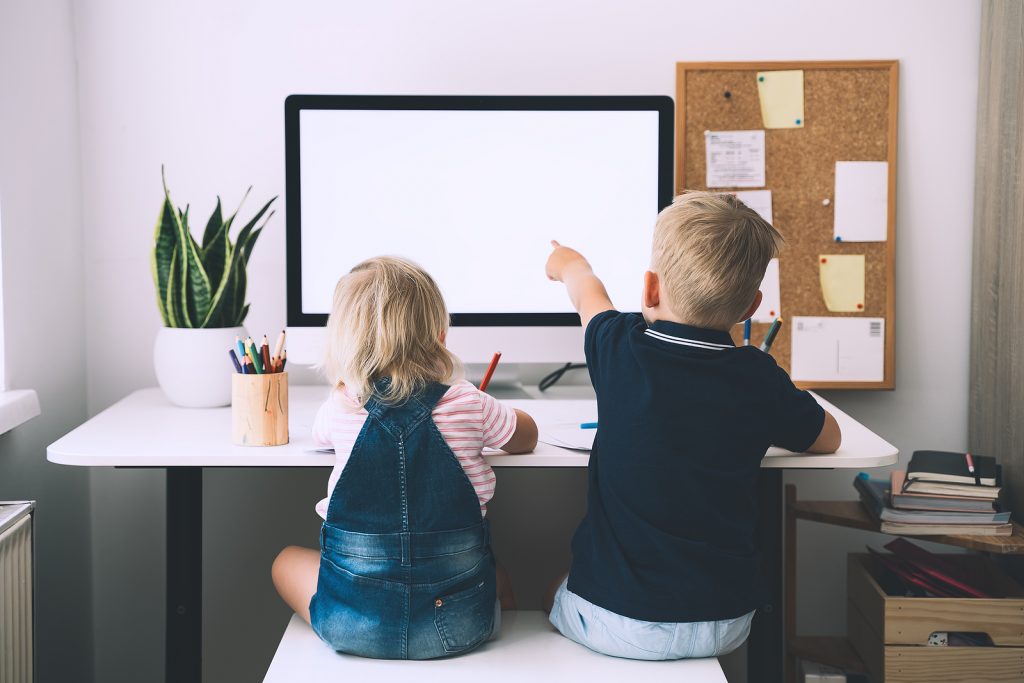Children and Technology: The Balancing Act
by Kat Rowe | April 22, 2021
Technology’s become an integral part of our lives, and, clearly, it’s here to stay. Is this a problem, though? Children are on their screens all the time these days. What are the consequences of this? Should their screen time be minimised? These questions are important and need to be answered.
What are children doing on their screens?
Screens have become a popular choice for passing time. Instead of playing outside, kids want to play video games and watch TV. Of course, technology is also being used as an educational tool. Our kids are using computers to learn both at school and at home. At school, they could be on the computer to learn about new educational software or to put their assignment together. Our children are also using technology to connect with friends and video chat with family members such as grandparents.
What research says about children and technology
Unfortunately, there’s still a lot about technology’s impact on child growth and development that we don’t know. The Australian Research Council is actively working to change this, as they’ve recently implemented the Centre of Excellence for the Digital Child, whose sole focus is to ensure Australian children are growing up healthy. While this organisation is relatively new, other researchers have managed to uncover some informative data we can rely on for now.
Limited screen time is ideal

Kids younger than 3 should have limited screen time. More screen time for this age range has shown poorer performance on tests looking at behavioural, cognitive, and social development. What’s more is that children younger than 3 aren’t getting any educational value, as they’re more confused by videos and can’t understand they might be real. However, educational children’s media is helpful for older toddlers, especially if you’re engaging in the material with them.
Cognitive test scores
In older kids, there have been some studies that show a connection between more screen time and lower scores on cognitive tests. We need to keep in mind, though, that this connection is correlational. This just means that they can’t say for sure that more screen time is causing lower scores. For all we know right now, lower cognitive scores could be causing those kids to seek out more screen time. It’s important to keep in mind, as well, that a 2016 study of Australian children didn’t show any significant effect of technology use on their social and emotional wellbeing.
The physical side of it
One impact of technology on children we’re sure of is that it can lead to poorer physical health. Studies have shown an increase in BMI and body fat caused by higher amounts of screen time. This, in turn, can also lead to poorer mental health. Thankfully, regular exercise will help prevent any physical health issues as well as decrease your children’s risk of developing mental health problems.
There are physical issues that can be caused specifically by sitting at a computer for long periods, as well. To help prevent this from happening, researchers suggest changing up the tasks they’re doing, varying their posture, and encouraging physical movement.
Is it becoming problematic?
The biggest question here is how to know if screen time is creating problems for your children. As we’ve seen, there isn’t much solid research out yet about the impacts of screen time on children. However, if your child is overweight and spending their free time on screen, then you may want to limit their screen time to encourage some healthier habits.
Most importantly, you know your kids. If you see your kids experiencing any problems, then your best bet is to take them to see a professional. However, if you believe their screen time is negatively impacting their health, it may be time to set some boundaries and change the routines within your family.
Some healthy boundaries
We all know it would be unrealistic to prevent your children from using technology at all. They will need it for learning, and it’s healthy to let them use it to unwind a bit. However, it’s also completely healthy and normal to limit the time they can be on their screens. There have been multiple studies (1,2) showing that the best mental health in pre-teens resulted from less than 2 hours of recreational screen time per day. Importantly, this was also when those children were getting regular sleep and exercise.
We do what we see
Keep in mind that your children will model their behaviour after their parents. If we want our kids to have healthy habits, it’s important that we’re following those habits, too. Limiting screen time for both you and your kids could even be a great opportunity to have more family time!

Let Stride help
You don’t need to worry about this alone. Stride Kids offers support for children and their families. If you’re at all concerned about your child’s wellbeing, Stride is here to support you in raising happier, healthier kids. Get in touch today.

